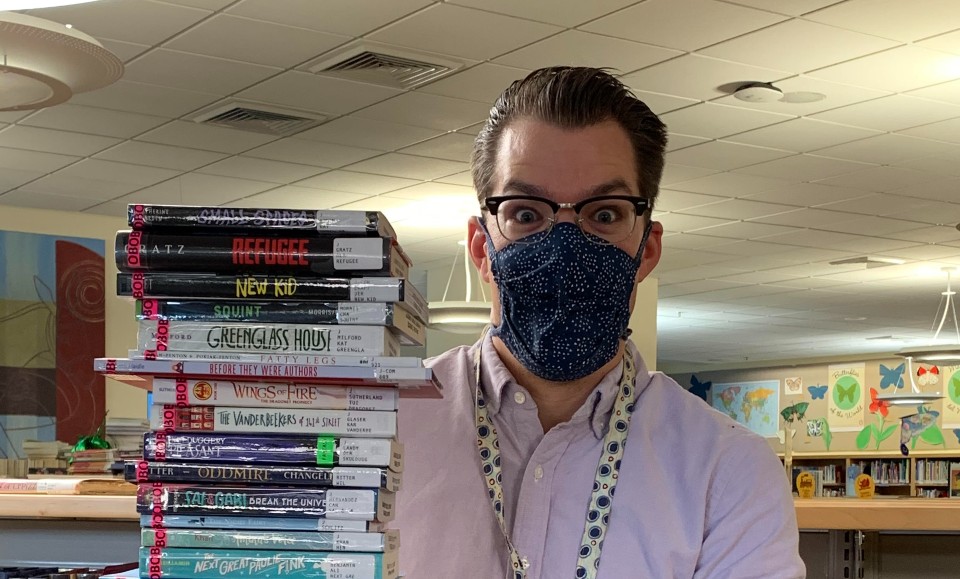
In December 2021, I made the big life decision to leave my first public library job. I started working there in June 2016, when a renewed levy brought on a bunch of new staff as the library system expanded hours and programming. I got hired as a branch librarian in a 3016 square foot library that was housed in a former bank. A series of departures in late 2017 led to my being transferred into the job I had initially been rejected for at the main library in Youth Services. I was absolutely thrilled. By late 2019, more departures led to my temporary appointment as youth services supervisor. Because of the pandemic and an impending institutional reorganization, “temporary” ended up being until July 2021. All in all, I was there for 5 1/2 years.
I won’t really go into all the reasons that I decided to leave but it wasn’t easy. I loved where I lived. I loved the huge, multi-story building and the college town bustle. I loved my coworkers. But, in my heart, the north was calling. My partner and I relocated to the Portland area and I’m working at a cozy suburban library (22,500 square feet). Last time I left a job I cared about, I shared a list of what I learned there. So I’m doing that again. Maybe more for me than for anyone reading this. But here goes nothing:
- This is what a reading community looks like. The first time I visited the main library, I legitimately cried. The space is so beautiful. Working there, I was delighted to see such high levels of community engagement and support. Every job I will ever have in the future will be compared to this one—and for good reason.
- Youth Services = In Service to Youth. To quote Oakland librarian Nina Lindsay, “The library is often the first place a child can be themselves, on their own terms.” When we serve youth, we bear an enormous responsibility to cultivate environments that are inclusive, safe, and age-specific.
- Relationship building is a core library service. I love books more than anything. But it’s the people that make the library special. The connections we build with patrons around our services are so much more important than the books themselves. Books get weeded but our memories and connections to the library—and, yes, to books—can last forever.
- Empathy comes first. Having to respond to incidents and emergencies taught me a lot about reframing negative patron interactions. As my former manager used to say, “We see people on their worst day.” Aside from safety, the goal should always be for patrons to feel like they can come back. Clear expectations (and a lot of grace) help all patrons have positive experiences.
- Change is a whirlpool; our community is an anchor. Change is a constant in libraries and it can be overwhelming if you let yourself spin around too much in it. While individual people certainly matter, the library is bigger than any one person. Community need should always be our guide. We are public servants, after all.
- What you say about your workplace matters. Pretty soon after I started, I had people telling me that it was only a matter of time before I left. That kind of broke my heart. Libraries have all the raw materials for excellence. It’s what we do with those materials (and how) that sometimes gets in the way of us truly taking flight and soaring. You cannot change workplace culture if you do not see and promote the things that make people stay.
- “Libraries Are for Everyone” is step one. It’s what happens after the sign goes up that matters. There are no metrics that will prove we’ve done enough. No trainings. No book clubs. There is no checklist. There is only a commitment to ongoing action, systemwide accountability, and constant conversation. Equity, diversity, inclusion, and antiracism belong in every single conversation about library services. All of them.
- Fun is a solution. Bureaucracy sucks. There’s a lot you can’t control. Working in a library can be emotionally exhausting. But again and again I’m reminded of this quote from poet Franki Elliot: “How to solve almost anything: figure out how to have fun and have it.” While fun might not solve everything, attitude makes a world of difference. Just beware toxic positivity.